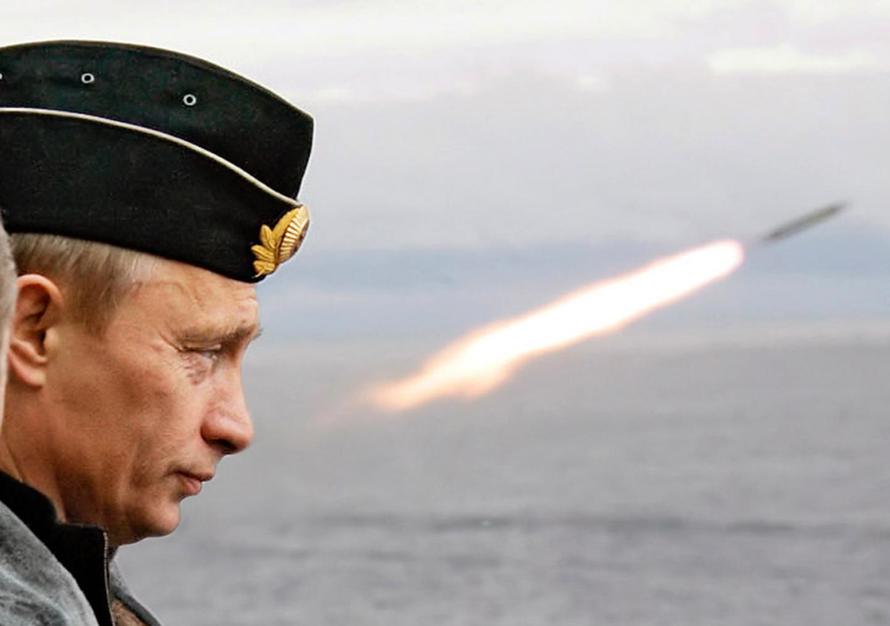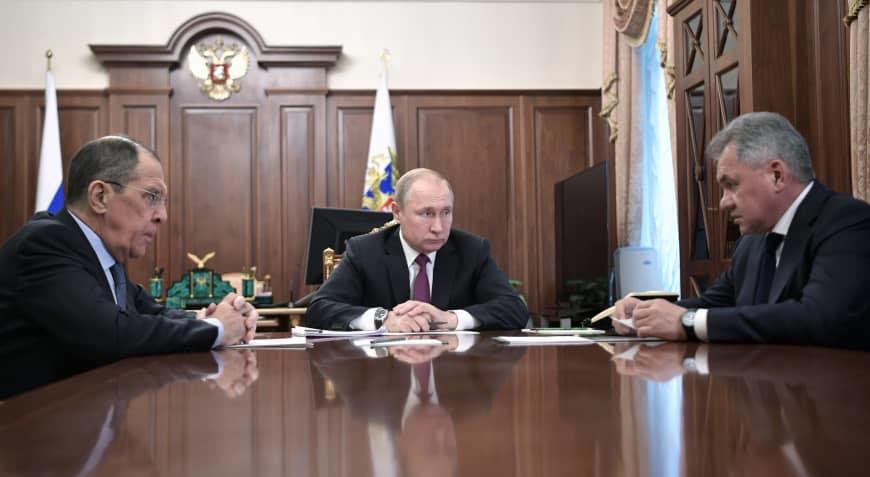So now the race is on — a dangerous new Cold War style arms race between Russia and the United States that is. Reuters has issued an alarming report which highlights “Russia will race to develop two new land-based missile launch systems before 2021 to respond to Washington’s planned exit from a landmark nuclear arms control pact, it said on Tuesday.”

The Intermediate-Range Nuclear Forces Treaty (INF) effectively collapsed over the weekend following the US announcing Friday that it’s suspending all obligations under the treaty. Predictably Moscow’s response was swift with President Vladimir Putin saying in a Saturday meeting with his foreign and defense ministers that Russia will now pursue missile development previously banned under its terms.
Putin said “ours will be a mirror response” in a tit-for-tat move that the Russian president ultimately blames on Washington’s years-long “systematic” undermining of the agreement.
And now Russia’s Defense Ministry is essentially saying “game on” — per Defense Minister Sergei Shoigu’s new orders issued on Tuesday: “From Feb. 2, the United States suspended its obligations under the INF treaty,” Shoigu told a meeting of defense heads. “At the same time they are actively working to create a land-based missile with a range of more than 500 km which is outside the treaty’s limits. President Putin has given the defense ministry the task of taking symmetrical measures.”
What will these “symmetrical measures” consist in? Putin outlined this in prior statements over the weekend, according to Reuters:
Washington had made clear it planned to start research, development and design work on new missile systems and Moscow would do the same, Putin said.
The Russian military should start work on creating land-based launch systems for an existing ship-launched cruise missile, the Kalibr, and for longer-range hypersonic missiles which travel at least five times the speed of sound, he said.
Crucially, however, he noted that there were no plans to deploy short and mid-range missiles to Europe unless the US does it first — a worst nightmare scenario that has rattled European leaders ever since talk began from Trump that the 1987 treaty could be scrapped.
Putin still seemed to allow some degree space for last minute concessions as “still on the table” possibly in line with the Trump administration’s desire to modernize and update a new treaty taking into account new technological and geopolitical realities, such as China’s ballistic missile capabilities.
“Let’s wait until our partners mature sufficiently to hold a level, meaningful conversation on this topic, which is extremely important for us, them, and the entire world,” Putin said during his weekend comments. But also lashing out during the press conference that followed the meeting with top officials Putin described:
Over many years, we have repeatedly suggested staging new disarmament talks, on all types of weapons. Over the last few years, we have seen our initiatives not supported. On the contrary, pretexts are constantly sought to demolish the existing system of international security.
Specifically he and FM Sergei Lavrov referenced not only Trump’s threats to quit the agreement, which heightened in December, but accusations leveled from Washington that the Kremlin was in violation. The White House has now affirmed the bilateral historic agreement signed by Mikhail Gorbachev and Ronald Reagan will be suspended for 180 days. Lavrov insisted that Moscow “attempted to do everything we could to rescue the treaty.”

Both sides are now blaming the other’s refusal to return to the table. On Tuesday US disarmament ambassador Robert Wood stated before a U.N.-sponsored Conference on Disarmament in Geneva that the United States would reconsider its withdrawal from the INF treaty “should Russia return to full and verifiable compliance.”
“This is Russia’s final opportunity to return to compliance,” Wood said; however, this clearly doesn’t appear much of a humble open-handed invitation urging Moscow to return in good faith.
It now appears both sides are hardening in their position, which doesn’t bode well for a potential future return of a Cold War style arms race. Indeed it appears to have already begun.
via ZeroHedge News http://bit.ly/2S8HmKl Tyler Durden